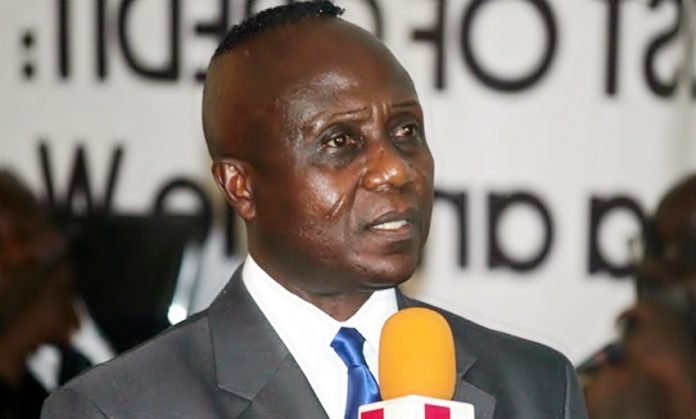The Institute of Economic Affairs (IEA) is pushing for the establishment of a Currency Board (CB) to limit the Central Bank lending to the government, a move it believes will stabilise the cedi and prevent instability in the economy in times of shocks.
According to the institute, since the CB system has limited inflation, the currency does not depreciate and balance of payments crises are rare.
“You see, a Currency Board (CB) is a rigid monetary management system that is hedged in strict rules, with little room for discretion. The CB does not lend to government and it covers its currency fully by foreign exchange”.
“The CB system has limited inflation, the currency does not depreciate and balance of payments crises are rare. This is close to the system in our Francophone neighbours, who restrict their Central Bank lending to governments and provide adequate cover for their currency, the CFA”, it emphasised.
Furthermore, the IEA said the Francophone countries system guarantees them low inflation and a stable currency, but “you have Ghana that has chosen an independent Central Bank to conduct discretionary monetary policy’.
It also blamed the Bank of Ghana for some of the economic woes, saying, “The Central Bank provides significant lending to government and covers the cedi with limited foreign exchange (40% in the Act). No doubt we face perennial price and currency instability!”
“It is for this reason that some of us have argued that if we continue to abuse policy discretion and pay a high price for it in terms of macroeconomic instability, then we better hedge our policies by rules; tie our economic managers hands, so that we can enjoy rules-driven macroeconomic stability!”, it added.
Finally, the IEA said despite Ghana having rules such as the Public Financial Management Act, the Bank of Ghana Act and the Fiscal Responsibility Act, the rules have not work because of lack of political way.
“Let me say that it is not that we have had no rules at all in fiscal and monetary management. In fact, I can mention a couple of them, such as the Public Financial Management Act, the Bank of Ghana Act, the Fiscal Responsibility Act and the relevant provisions in the 1992 Constitution, which represent attempts to introduce rules in our fiscal and monetary management system”.
“However, there are serious questions regarding not only their enforcement but their effectiveness as well. And that is the reason we feel strongly about the need to give constitutional backing to some of these rules”, it concluded.
Latest Stories
-
Let’s prioritize research quality in higher education institutions for industrial growth-Prof. Nathaniel Boso
54 mins -
Herman Suede is set to release ‘How Dare You’ on April 24
5 hours -
Heal KATH: Kuapa Kokoo, Association of Garages donate 120k to support project
5 hours -
KNUST signs MOU with Valco Trust Fund, Bekwai Municipal Hospital to build student hostel
5 hours -
The influence Ronaldo has on people, Cadman Yamoah will have same on the next generation – Coach Goodwin
6 hours -
Gender Advocate Emelia Naa Ayeley Aryee Wins prestigious Merck Foundation Awards
7 hours -
South Africa bursary scandal suspects granted bail
7 hours -
Ecobank successfully repays $500m Eurobond due April 18
7 hours -
Re: Doe Adjaho, Torgbui Samlafo IV, call for Unity among Paramountcies in Anlo
7 hours -
Extortion and kidnap – a deadly journey across Mexico into the US
7 hours -
Rihanna says fashion has helped her personal ‘rediscovery’ after having children
8 hours -
Development Bank Ghana targets GH¢1bn funding for commercial banks in 2024
8 hours -
Shatta Movement apologises to Ghana Society of the Physically Disabled after backlash
8 hours -
Sammy Gyamfi writes: Tema-Mpakadan Railway Project; A railway line to nowhere
9 hours -
Bright Simons: Is the World Bank saving or harming Ghana?
9 hours

